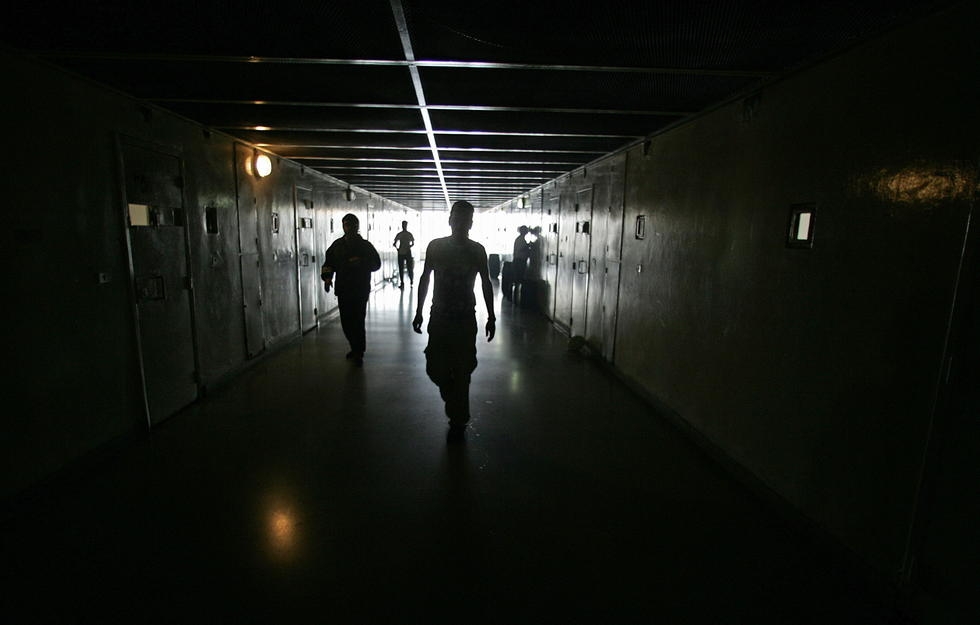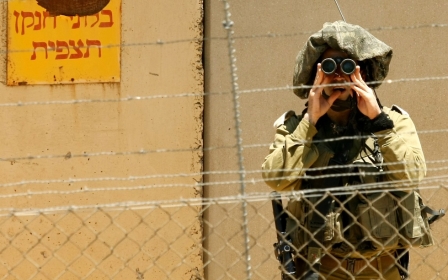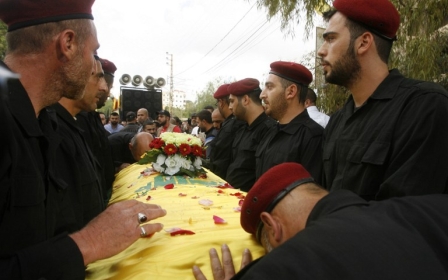Lebanon’s tortured reality

In the wake of the Abu Ghraib scandal in 2004, American officials and media apologists did their best to cast the torturous goings - on at the Iraqi prison as the work of an isolated group of bad apples - an alleged anomaly that unfairly tarnished the image of the otherwise munificent US armed forces.
Far from an aberration, however, these bad apples were instead symptoms of systemic putridity, the inevitable byproduct of an imperial setup predicated on the violation of human rights at home and abroad.
The diminutive nation of Lebanon is now enjoying its own mini-Abu Ghraib moment following the release, this past weekend, of leaked footage of members of the Lebanese Internal Security Forces (ISF) beating and torturing Islamist inmates at Roumieh prison outside Beirut.
Lebanese officials have also sought to portray the episode as an isolated incident - the very same official Lebanese reaction, incidentally, to an assessment by the United Nations Committee against Torture in 2014:
“Torture in Lebanon is a pervasive practice that is routinely used by the armed forces and law enforcement agencies for the purpose of investigation, for securing confessions to be used in criminal proceedings and, in some cases for punishing acts that the victim is believed to have committed.”
The Committee’s findings were compiled during a 2013 excursion to Lebanon by appointed Committee members in the company of a medical expert and various other UN officials and representatives. As noted in the 2014 report, Lebanon initially “requested the postponement of the visit as the dates proposed by the Committee did not allow enough time for it to prepare adequately”.
Once the visit had taken place, “the State party claimed to be utterly astounded at the conclusions of the Committee” and the suggestion that there might be a “clear pattern of widespread torture and ill-treatment of suspects in custody”.
Had they been given more adequate preparation time, prison administrators might perhaps have considered dispensing with the “very low iron chair with a rounded, c-shape neck holder” that visiting Committee members stumbled upon at one detention facility. Although ISF personnel less-than-convincingly claimed that said chair was merely utilised for detainee photography sessions, the Committee apparently found its design more reminiscent of a spine-stretching apparatus described by one of its purported victims as well as a Geneva-based human rights group.
Indeed, there are plenty of things to be astounded at on the Lebanese prison scene, but being called out for torture isn’t one of them.
Of the three people I personally know who have had the misfortune to wind up on the receiving end of Lebanese “justice,” all three were either direct recipients of or audio-visual witnesses to physical abuse.
One acquaintance, detained for three days by the ISF in an overcrowded cell in which one cellmate had already spent 89 days without charge, recounted to me the especially brutal treatment meted out to a poor Egyptian detainee. It seems the man’s dismal socioeconomic status and maligned national identity provided additional inspiration to his power-tripping interrogators, who whipped him with cables and subjected him to a torture method nicknamed after rotisserie chicken.
The Egyptian’s crime, according to my acquaintance, was to have been employed on a cannabis farm, the Lebanese proprietor of which was able to pay his own way out of jail time and avoid being strung up like cheap meat.
Another friend of mine, a member of Lebanon’s persecuted Palestinian population, survived several years in Roumieh, five days of which were spent blindfolded in an underground cell. Regarding this particular experience, my friend would tell me nothing beyond the fact that he would have preferred to die.
A 2013 Human Rights Watch report titled “It’s Part of the Job: Ill-treatment and Torture of Vulnerable Groups in Lebanese Police Stations” additionally underscores the ISF’s institutionalised reliance on torture when it comes to dealing with marginalised folks like drug users, sex workers, and the LGBT community.
Recalling that “Section 620M of the Foreign Assistance Act (the ‘Leahy Law’) prohibits the US government from providing any assistance to a security unit if there is credible information that the unit has committed gross violations of human rights,” HRW notes: “To our knowledge, the Leahy Law has not yet been applied to deny aid to any ISF units.”
Given the United States’ solid relationship with torture in the post-9/11 era, the oversight is perhaps less than astounding. At a ceremony last September, US Ambassador to Lebanon David Hale boasted that his embassy had provided over $140 million to the ISF since 2008, and praised the ISF and other Lebanese security bodies for having “made many sacrifices in their confrontation with forces seeking to sow instability and division”.
Contending that Lebanon was “safer for these sacrifices,” the ambassador concluded his remarks with a tribute to the Lebanese soldiers and policemen kidnapped the previous month by ISIS and the al-Nusra Front.
In light of this weekend’s leaked torture footage, Hale’s musings on ISF-induced safety appear even less prophetic; for one thing, ISIS has pledged to begin torturing the captive Lebanese servicemen in retaliation for the ISF’s treatment of imprisoned Islamists, with some parts of the country fearing severe repercussions.
Meanwhile, torture may be an ineffective means of extracting information, but it’s a pretty good way to further alienate and radicalise detainees - as well as their unimprisoned sympathisers.
Among the beneficiaries of instability and division in Lebanon are the country’s sectarian elite, who owe their positions of prominence to perennial discord and widespread impunity. So while officials feign shock at the recent torture episode - after which a smattering of ISF members were arrested - many Lebanese may be more shocked at the fact that any sort of approximation of justice was attempted in the first place.
In the long run, though, you can reasonably bet the current pseudo-crackdown on torture in Lebanon will remain an isolated incident - something that certainly can’t be said for the practice itself.
- Belen Fernandez is the author of The Imperial Messenger: Thomas Friedman at Work, published by Verso. She is a contributing editor at Jacobin magazine.
The views expressed in this article belong to the author and do not necessarily reflect the editorial policy of Middle East Eye.
Photo: Lebanese priosners walk between the cells at Roumieh prison, northeast of Beirut (AFP)
New MEE newsletter: Jerusalem Dispatch
Sign up to get the latest insights and analysis on Israel-Palestine, alongside Turkey Unpacked and other MEE newsletters
Middle East Eye delivers independent and unrivalled coverage and analysis of the Middle East, North Africa and beyond. To learn more about republishing this content and the associated fees, please fill out this form. More about MEE can be found here.





